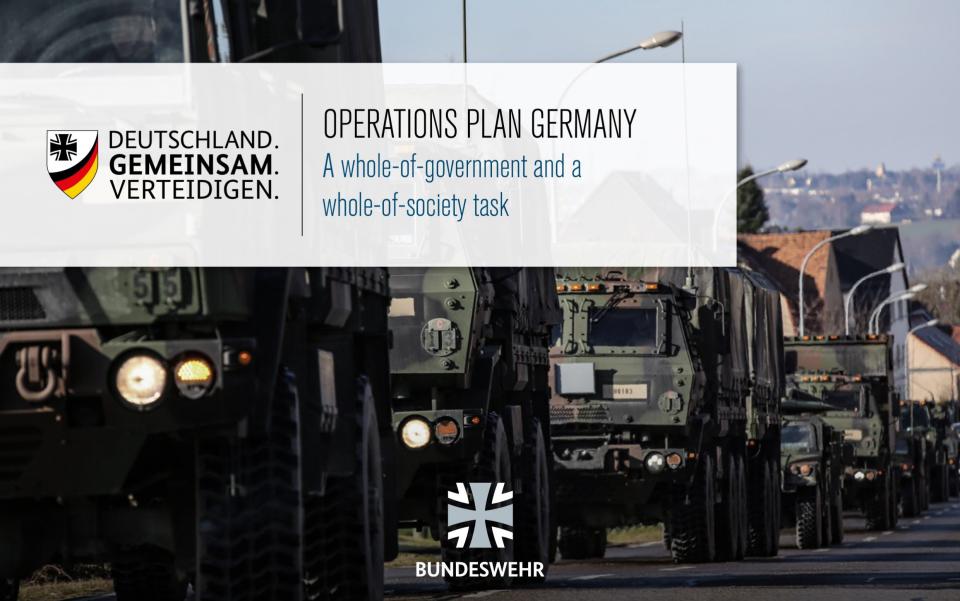German businesses are being advised by the army on how to cope in the event of war breaking out with Russia.
A secretive 1,000-page document, named Operations Plan Germany, contains tips for businesses on how to keep operations running smoothly in wartime, such as preparing replacement staff for migrant workers who leave the country.
It also lists key commercial buildings and other infrastructure that would need to be protected by the German army and broad logistical plans for hosting tens of thousands of allied Nato troops on German soil.
The document has been kept under wraps but a rough outline of its contents was disclosed to the German news outlet Frankfurter Allgemeine Zeitung.

The plan reportedly advises businesses to train an additional five truck drivers per 100 employees to avoid staff shortages in the event of war.
Around 70 per cent of German truck drivers are from Eastern Europe, many of whom would be expected to flee during conflict.
Businesses have also been advised to make “self-sufficiency” plans that would account for shortages in supplies or power, such as installing a backup diesel generator.
Another broader element is making businesses more aware of the risks surrounding drone surveillance, cyber-attacks and other forms of espionage in their communities.
One suggestion for businesses was taking note of any employees with a background in firefighting, national security or civil defence as they may become a valuable source of expertise.

The planning document is still not finished and largely contains “fragments” of advice. But it is considered a “living document” with new information being added on a regular basis, the German newspaper said.
It comes after Carsten Breuer, the German army’s chief of defence, warned that all of Europe was under threat in an address to the Berlin Security Conference.
“Europe is under threat and this affects us all… the situation is as serious and precarious as I have ever experienced in my life as a soldier,” he said.

German ministers have also warned that the country may have to fight in a Russia-Nato war within the next five to seven years, citing Moscow’s attempts to massively ramp up arms production.
Boris Pistorius, Germany’s defence minister, has said his country must become “kriegstüchtig”, or war-ready, in the face of increased threats from Russia, such as by bringing back conscription.
But the announcement of snap elections this February has raised questions as to whether those reforms will continue. German army chiefs hope that whoever replaces the current government, led by Olaf Scholz, will stay on the same course.
Speaking at the Berlin Security Conference this week, Lt Gen Alfons Mais said he expected that “we will have the [next government] very quickly.” He added that “my wish would be that the chapter [of the current government] of defence politics would not be the last”.
EMEA Tribune is not involved in this news article, it is taken from our partners and or from the News Agencies. Copyright and Credit go to the News Agencies, email news@emeatribune.com Follow our WhatsApp verified Channel




